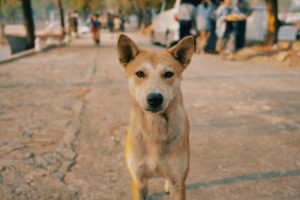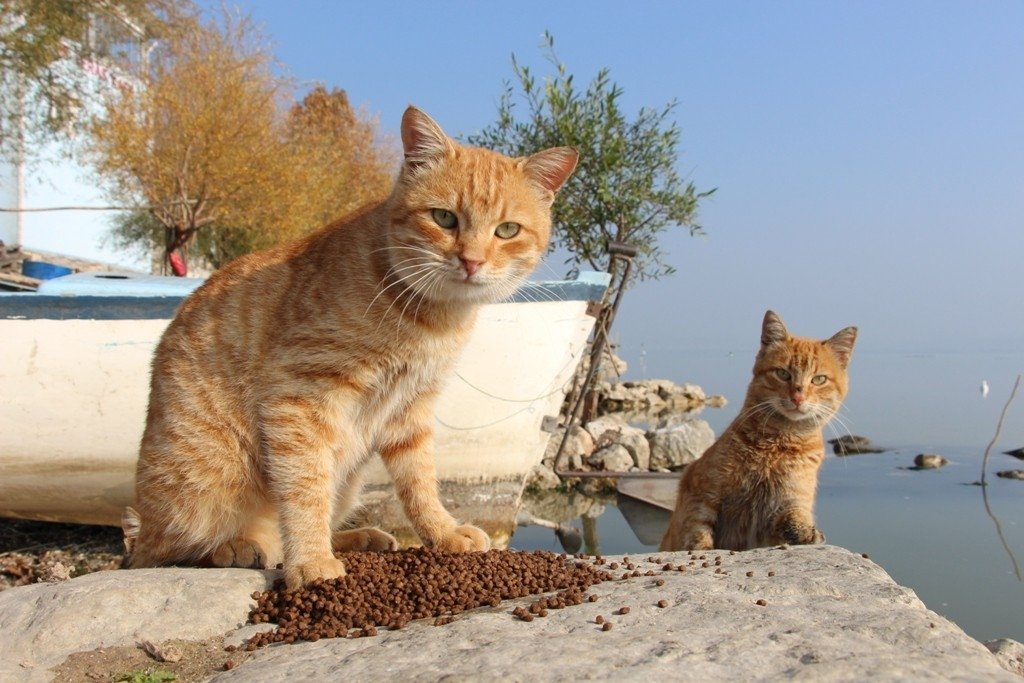With the law passed in Parliament this week, stray dogs will be taken to animal shelters by municipalities, and rehabilitated dogs will be housed in these places until they are adopted.
The Bill of Law on Amending the Animal Protection Law was accepted in the General Assembly of the Turkish Grand National Assembly and became law. The bill was accepted by 275 votes out of 500 deputies attending the General Assembly, while 224 deputies voted “no” and 1 deputie abstained.
The law abandons the “catch-neuter-release” method and foresees that homeless animals will be housed and rehabilitated in shelters.
According to information compiled by an AA correspondent, here are frequently asked questions and answers regarding the proposed law on stray animals:
Where will the stray animals be taken? Stray animals will be taken to animal shelters by the relevant municipalities, and the rehabilitated dogs will be housed in these places until they are adopted.
What obligations are imposed on municipalities regarding the collection of stray dogs and their admission to shelters? Local governments, in cooperation with voluntary organizations, will establish animal shelters to care for stray animals until they are adopted, provide their care and treatment, and conduct educational activities.
Rehabilitated dogs taken to animal shelters will be housed in these places until they are adopted. In order to provide accurate and up-to-date data, animals taken to animal shelters will be registered in the Ministry of Agriculture and Forestry data system.
Local authorities will be authorized to take the necessary administrative measures within the scope of the European Convention for the Protection of Pet Animals in their work and operations regarding stray dogs.
 How long will it take to establish animal shelters? Municipalities will establish animal shelters and improve the conditions of existing shelters by December 31, 2028.
How long will it take to establish animal shelters? Municipalities will establish animal shelters and improve the conditions of existing shelters by December 31, 2028.
What penal sanctions will be applied in case of failure to fulfill the responsibilities stipulated in the law? The administrative fine for the misdemeanor of abandoning an owned animal by its owner will be increased from 2,000 lira to 60,000 lira per animal.
Those who abandon stray animals collected on behalf of local governments to a place other than a shelter or abandon an animal kept in a shelter to a place other than a shelter will be fined 50,000 liras per animal.
Mayors and council members who do not allocate the specified resources, and mayors and municipal officials who do not spend the allocated resources to establish animal shelters, collect stray animals, rehabilitate them or care for them until they are adopted, or who spend these resources for other purposes will be sentenced to imprisonment from 6 months to 2 years.
How will the financing needed to solve the stray dog problem be met? Municipalities will allocate resources at the rate of 0.5 per thousand of their latest finalized budget revenues to establish animal shelters, carry out rehabilitation procedures and care for stray animals until they are adopted until December 31, 2028. This rate will be applied as 0.3 per thousand in metropolitan municipalities.
40 percent of the expenditures made by the municipalities above these rates will be transferred to the municipality by the Ministry of Treasury and Finance. The allocated funds cannot be used for any other purpose.
Which municipalities will be responsible for establishing nursing homes? Metropolitan municipalities, provincial municipalities and municipalities with a population exceeding 25 thousand will establish animal shelters to protect stray, weakened or endangered animals, provide care for them until they are adopted and ensure their rehabilitation.
Will homeless dogs be euthanized? The law refers to the conditions for euthanasia in the Veterinary Services, Plant Health, Food and Feed Laws.
Accordingly, among the dogs taken to the shelter, those that pose a danger to the life and health of humans and animals and whose negative behaviors cannot be controlled, those that have contagious or untreatable diseases or those that are prohibited from being owned, will be subject to the provisions of the Veterinary Services, Plant Health, Food and Feed Law, which states that “Euthanasia of animals is prohibited. However, in cases of diseases that cause pain and suffering to animals or that do not improve, for the purpose of preventing or eradicating an acute contagious animal disease or in cases that pose a risk to human health, in cases where behaviors pose a danger to the life and health of humans and animals and whose negative behaviors cannot be controlled, the veterinarian may decide to euthanize them. Euthanasia is performed by a veterinarian or under the supervision of a veterinarian.”
Which activities will be encouraged and supported within the scope of the regulation?
In order to protect human, animal and environmental health, incentives or financial support in amounts deemed appropriate by the Ministry will be provided to local governments and other relevant institutions and organizations to establish nursing homes, hospitals and operating rooms; to provide related medicines, tools and equipment; and to carry out activities such as care, rehabilitation and adoption in nursing homes.
What should cat and dog owners do? Cat and dog owners will be required to register their animals using digital identification methods by December 31, 2025 at the latest.
